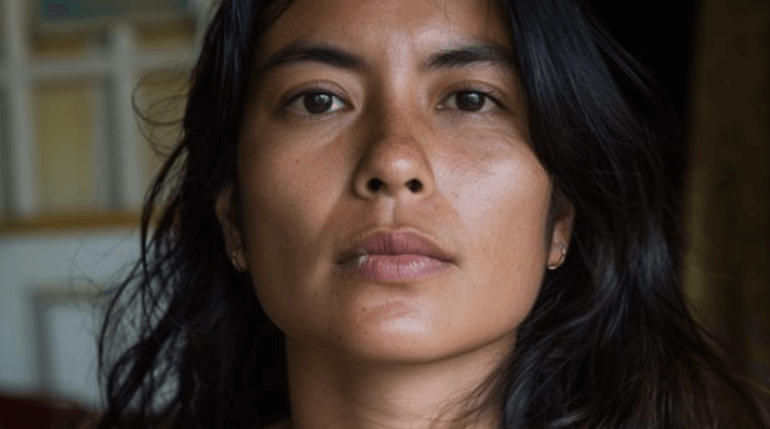Her birth certificate and utility bill in hand, “Laura” was walking to her high school to pay a registration fee when her life was brutally changed forever.
As she passed by a park, a man grabbed her from behind and put a rag over her head. She lost consciousness and awoke lying naked on the floor with her feet and hands bound. Over the next 2-3 days she was repeatedly raped, beaten and dragged across the room by her hair.
She was never fed and only once given a drink of water. She was blindfolded and didn’t see her assailant or know whether there were more than one. Weak and confused, her memory lapsed, and she lost track of time.
Her next clear memory was of running, fully clothed down a deserted highway. Laura didn’t know whether her attacker released her or if she escaped. She stopped at a hotel and asked a security guard to call a friend and the police.
Her friend came but the police never arrived. She took Laura to the hospital where she received medication to prevent infection and pregnancy but was not given a full exam because the doctors didn’t want the police involved. They urged Laura not to file a police report because the officers wouldn’t believe her.
She also was warned by a family friend who worked at the police station not to file a report or give police her personal information. The officers are corrupt, he said, and would make her life difficult. Nonetheless, Laura went to the police station, and as predicted, the officers told her they didn’t believe her … and said that even if she filed a report they still would not investigate.
“INEGI (Mexico’s statistics office) estimated that more than 70% of 50.5 million women and girls aged over 15 have experienced some kind of violence …Reports of sexual violence increased the most, up eight percentage points to reach half of all women surveyed …” — Mexico Daily Post, September 1, 2022
Back home, her life was indeed difficult. Her assailant had her birth certificate and a utility bill with her address. Laura feared he would find her and, because she didn’t know what he looked like, she was afraid to leave the house.
She had trouble sleeping and suffered nightmares and flashbacks. She stopped doing household chores… didn’t want to bathe or get dressed… had problems concentrating… and was hypersensitive to loud noises.
Then… she began cutting herself and contemplating suicide. (She later was diagnosed with PTSD after arriving in the US.)
She considered moving to another part of the country to live with an aunt, but her aunt said it was even more dangerous for women where she lived.
“The vast majority of (Mexican) women who experienced physical or sexual violence did not formally report their attacker or seek help from a public institution, according to INEGI.” – Reuters, August 31, 2022
In 2016, Laura fled to the US … presented herself at the border … and applied for asylum. Laura’s attorney, Rachel Wilson, argued that Laura qualified for protection because her persecution met one of the five grounds* required for asylum – “membership in a particular social group” – as a “Mexican Women” who are widely subject to gender-motivated violence.
The judge disagreed that “Mexican Women” qualified as a social group, and while the judge found Laura’s circumstances compelling and credible, denied her request for asylum.
Her attorney appealed to the Board of Immigration Appeals (BIA), which reviewed the case and sent it back to the Immigration Judge to reconsider whether “Mexican Women” in fact qualify as a social group. Upon reexamination, the judge concluded that “Mexican Women” are a social group for purposes of US asylum law, but again denied asylum, in part because he believed Laura could avoid future persecution by simply relocating somewhere else in Mexico.
In this ruling, the judge violated due process by issuing a denial before the deadline he had given to Laura’s attorney to file a brief with updated Mexico country conditions. Rachel, the attorney, again appealed to the BIA, with the Asylum Program of Arizona (APA) shouldering most of the cost of the appeal. As hoped, the BIA again sent the case back to the Immigration Judge for reconsideration.
But by now, nearly seven years had passed since Laura applied for asylum – long enough for nature to take its course and render the pending court case irrelevant. She fell in love and married a US citizen, who petitioned for Laura’s legal status.
And although fraud is presumed when a person in removal proceedings marries a US citizen, Laura overcame that presumption with evidence that her relationship was bona fide. Thankfully, she was granted Lawful Permanent Resident Status.
*The five grounds for asylum are a well-founded fear of persecution due to race, religion, nationality, membership in a particular social group, or political opinion.



